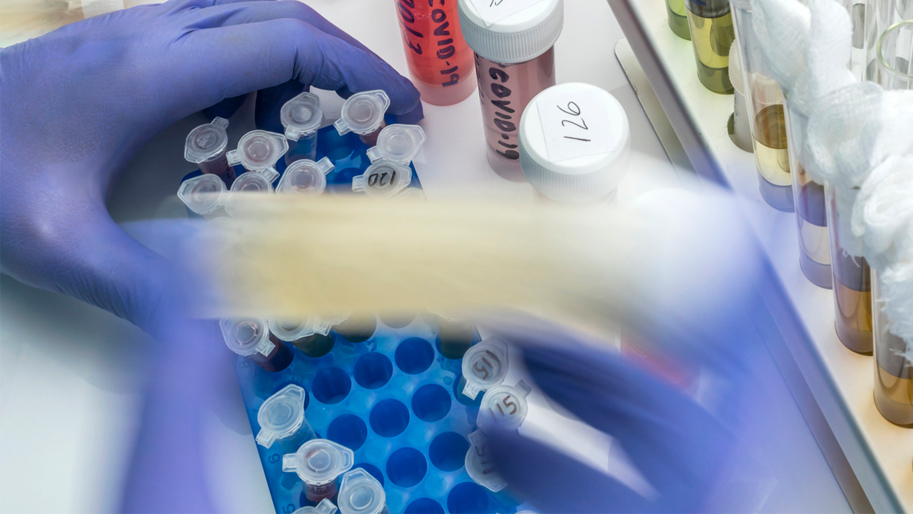Germany Moves Ahead with Antibody Testing
 © iStock
© iStock
Across Germany and many parts of the U.S., life is slowly starting to resume, albeit in new ways. Shops and restaurants are opening, small groups of friends are getting together and people are heading back to work. But along with the new normal comes yet another largely uncharted territory: antibody testing.
Who has been infected with SARS-CoV-2? What antibody tests are reliable? And do antibodies confer immunity? These questions are important not just for individuals, but for science, policy and the economy, too.
It takes 3-4 hours for a test to determine if a blood sample possesses SARS-CoV-2 antibodies. After a blood sample is taken, it is diluted and placed in a test tube on top of SARS-CoV-2 proteins. If antibodies are present in the blood sample, they attach to the proteins. Due to a fluorescent liquid reaction in the dilution medium, samples containing antibodies change color.
Many labs have produced antibody tests, but not all of them are reliable. On May 22, for instance, U.S. authorities took more than two dozen antibody tests off the market.
Data has demonstrated 99.8% accuracy for the test produced by Siemens Healthineers. On May 27 the German group announced they would produce 50 million antibody tests monthly. These tests will be produced at the company’s Massachusetts and Delaware locations and shipped worldwide.
The test developed by the Swiss pharmaceutical company Roche, with its research, development and production facility located in Penzberg in southern Germany, has also shown 99.8% accuracy. Roche says it plans to invest 400 million euros in its Penzberg facility, and the state of Bavaria where it is located has committed 40 million of its own to expand operations there.
On May 4 Germany announced a deal with Roche to get 3 million of the antibody tests in May and 5 million monthly thereafter. But before the government begins the program, it will be debated by the German Ethics Council. Some have theorized that widespread testing would result in “immunity passports,” which would allow some citizens to live and move freely while others remain restricted.
Beyond the ethical questions, others remain. Chief among them: who needs to get tested for antibodies? For now, says Dr. Thomas Fenner, Director of the Laboratory Fenner & Kollegen in Hamburg, not everyone.
“People who were in a high-risk area in February and March who had symptoms should be tested,” said Fenner in an interview with Spiegel online. These symptoms included fever, headaches, sore throat and loss of taste. Fenner’s other recommendations included essential workers and those who tested positive to COVID-19 more than three weeks ago who wish to know if they developed immunity. Antibody tests are only accurate 3-4 weeks after infection.
Scientists are still not certain that positive antibody tests confer immunity. In Thomas Fenner’s lab, 1-1.5% of tests resulted in false positive results. As a completely new pathogen, scientist’s knowledge of SARS-CoV-2 dates back only a few months.
Besides determining an individual’s immunity, antibody tests help answer questions like how long and how widely the virus has the virus been spreading, what the infection and mortality rates are and how long we will be living with COVID-19 restrictions. Thus, they are crucial to understanding the path of the disease and our way forward.
For a guide on antibody testing in New York, check out the Gothamist.
